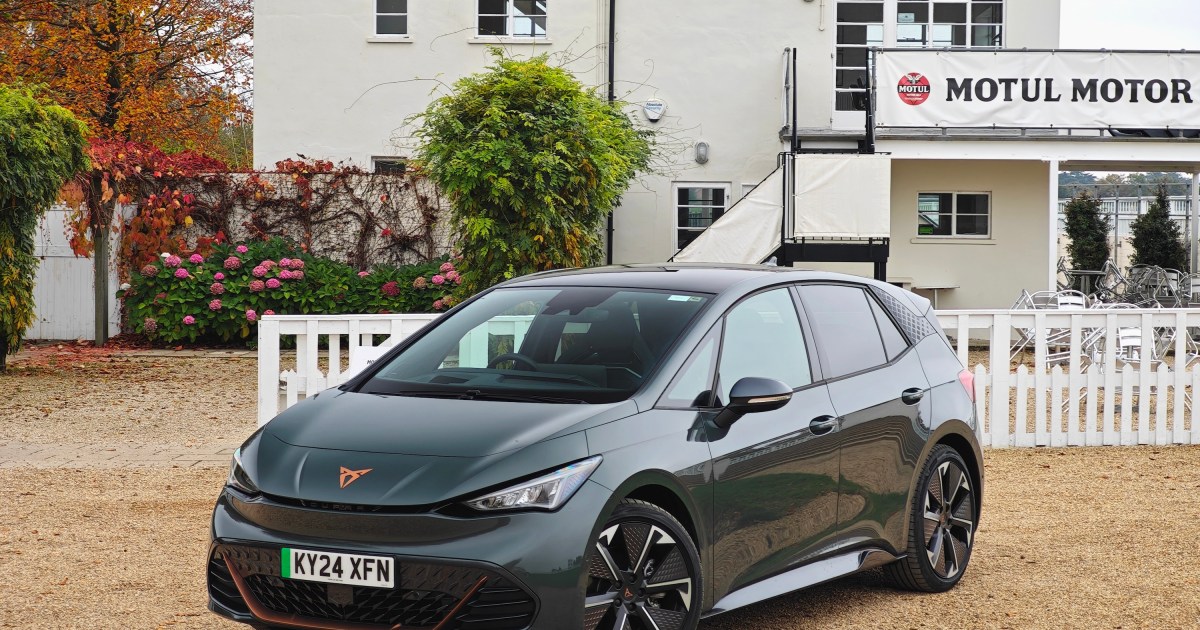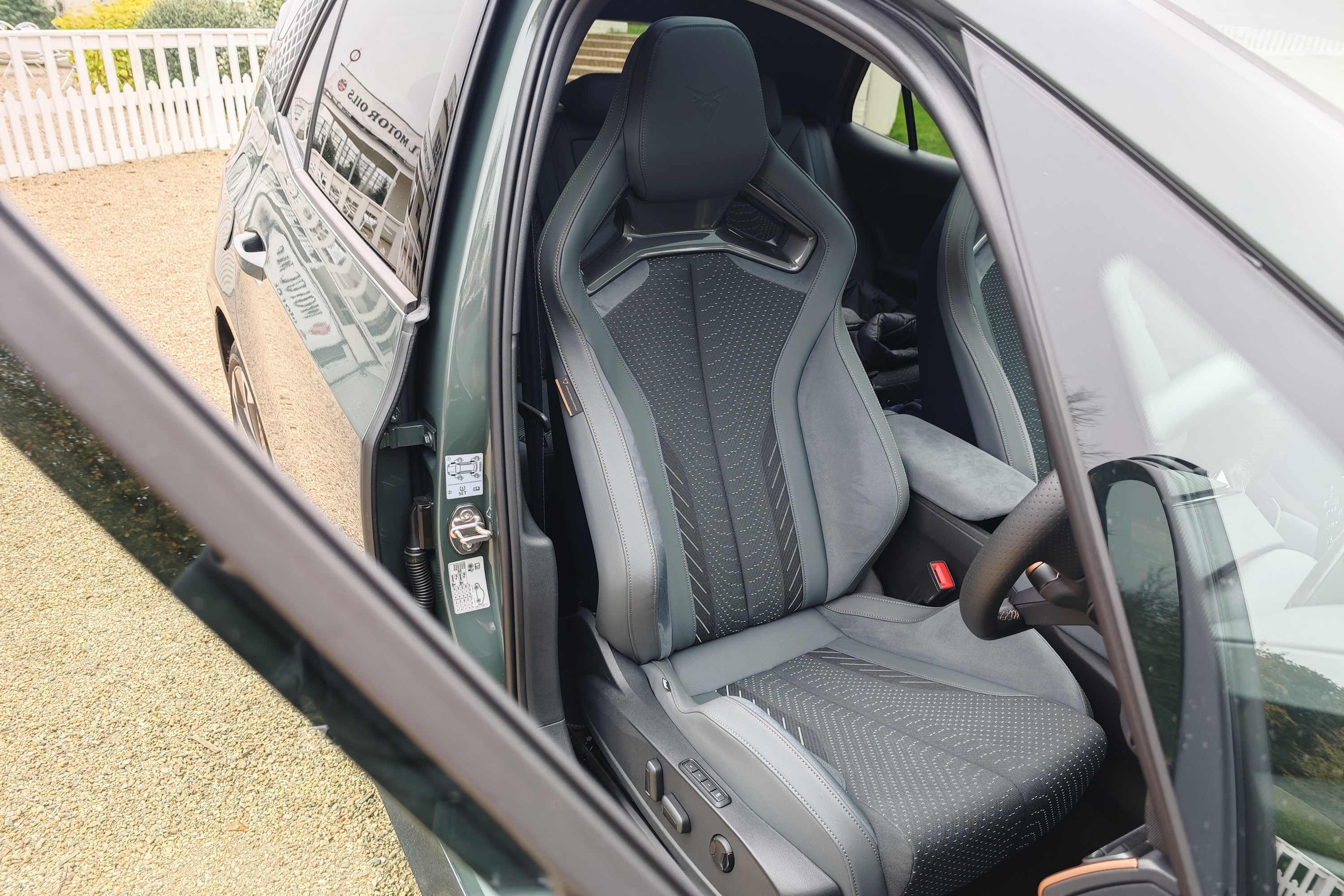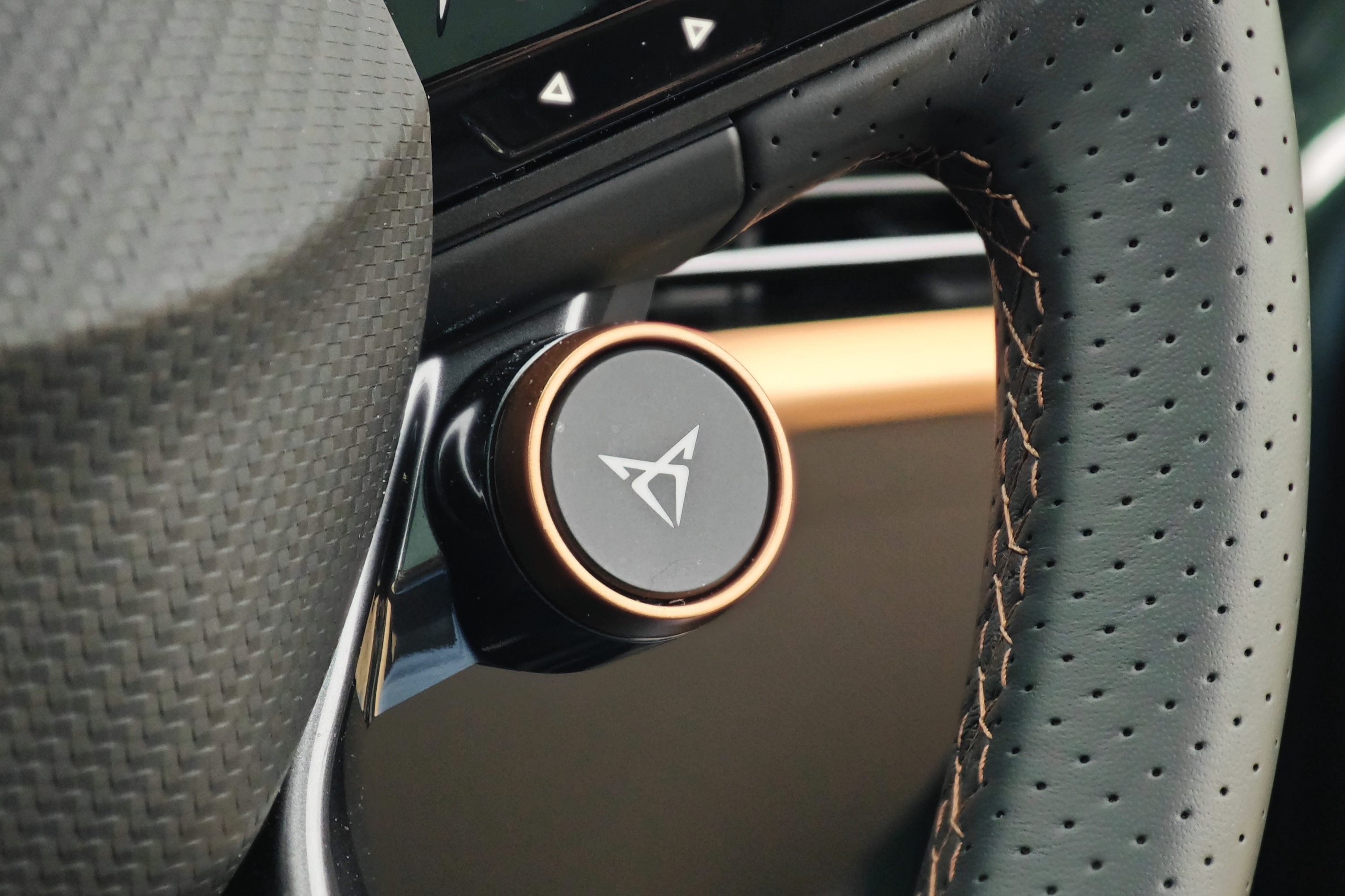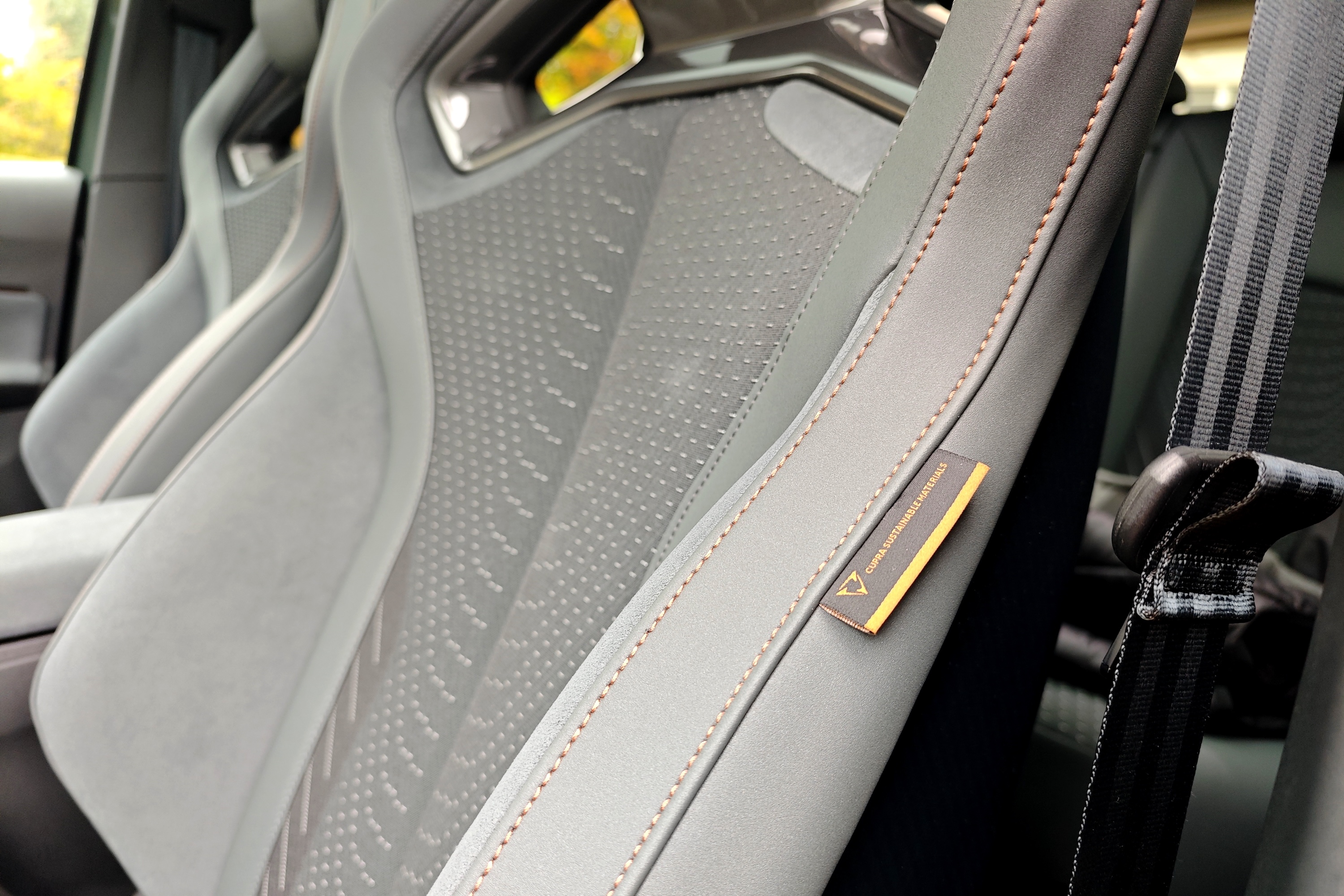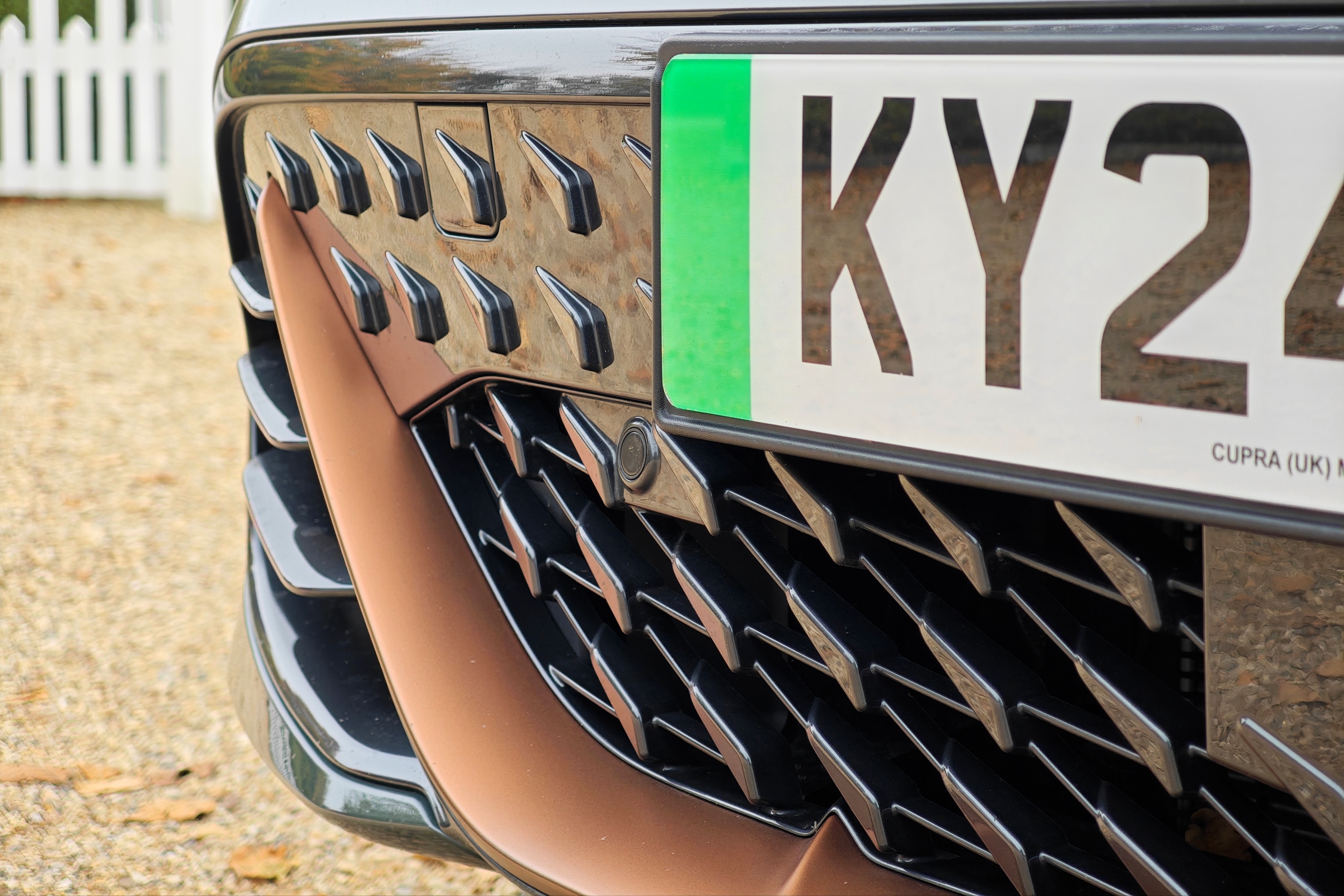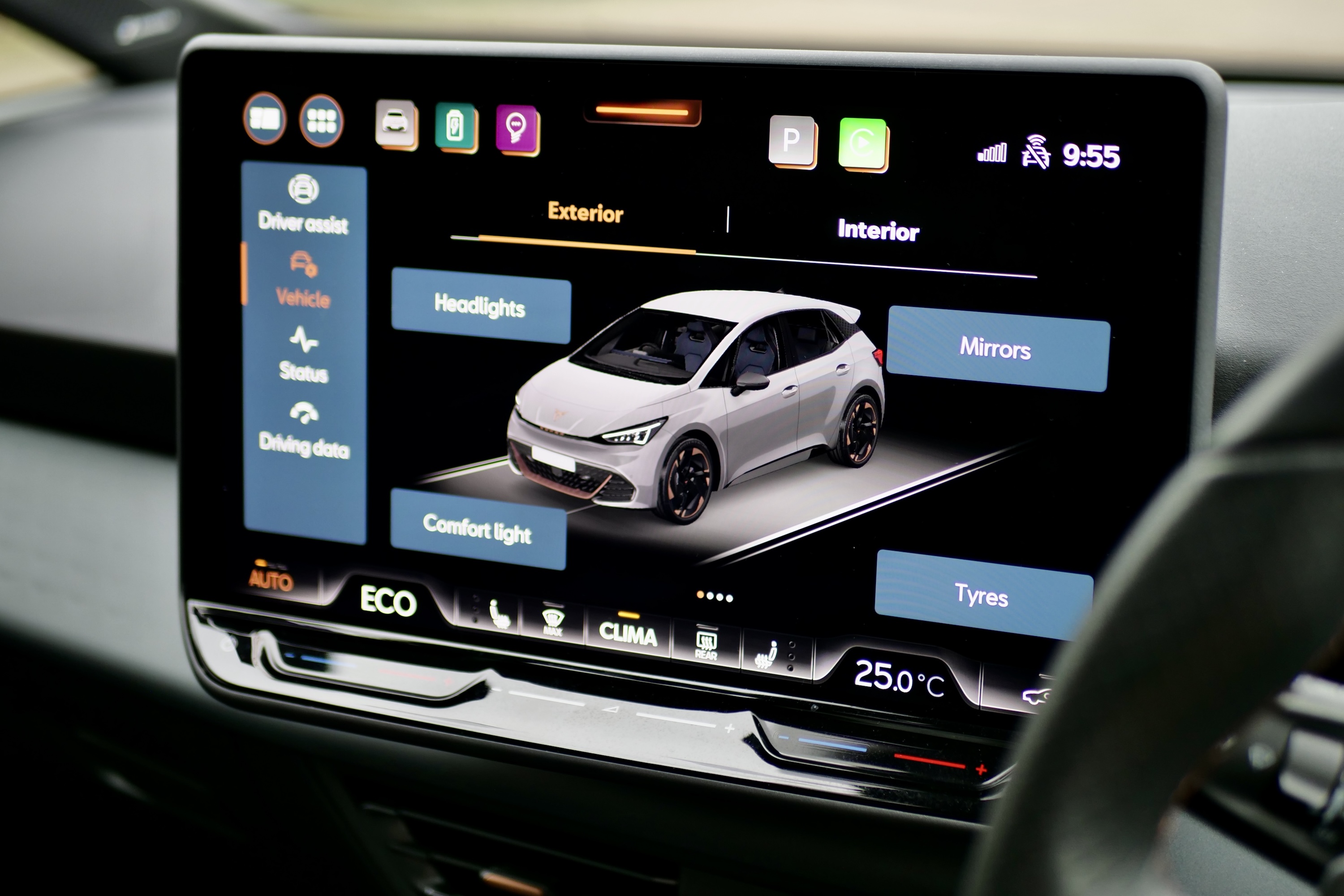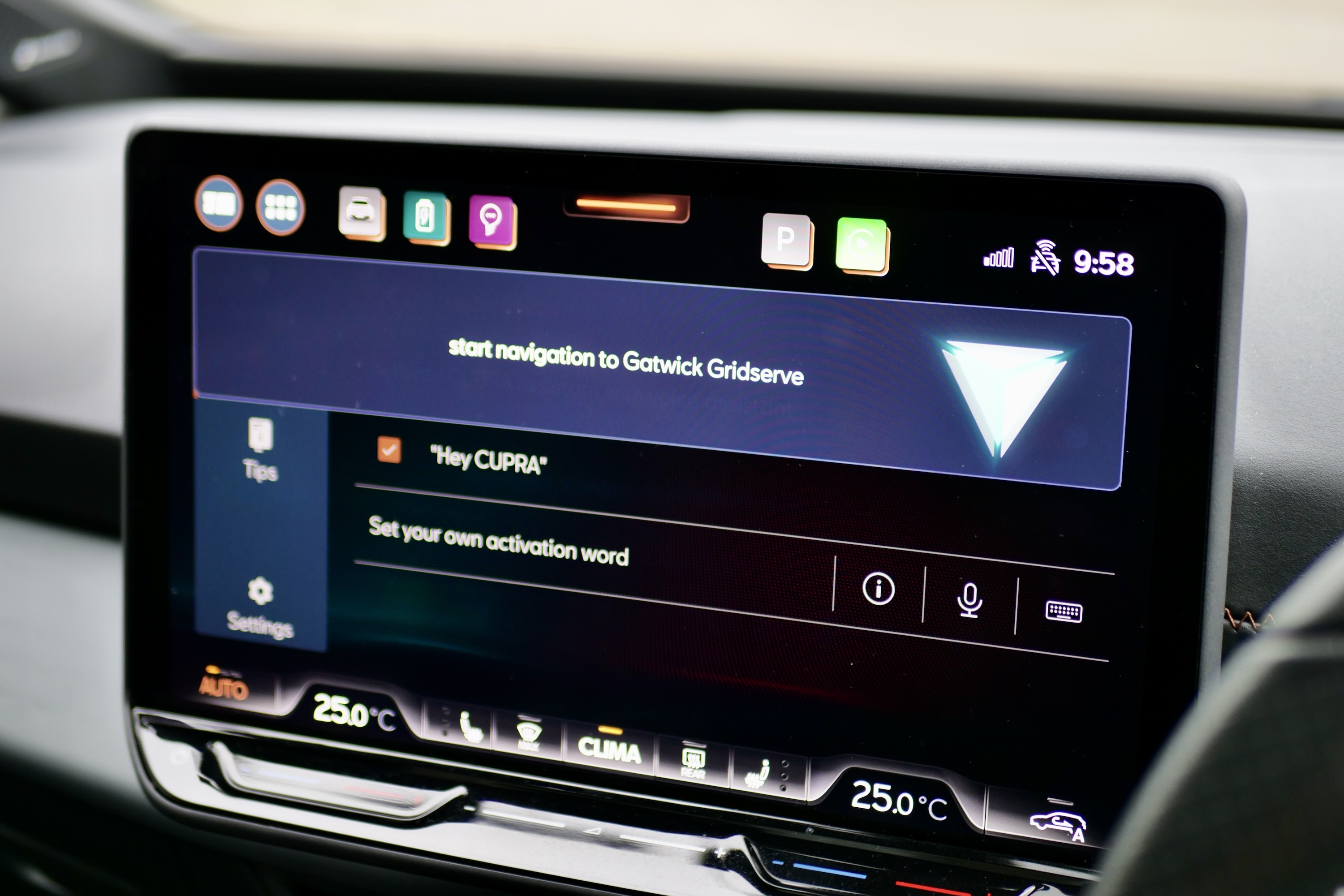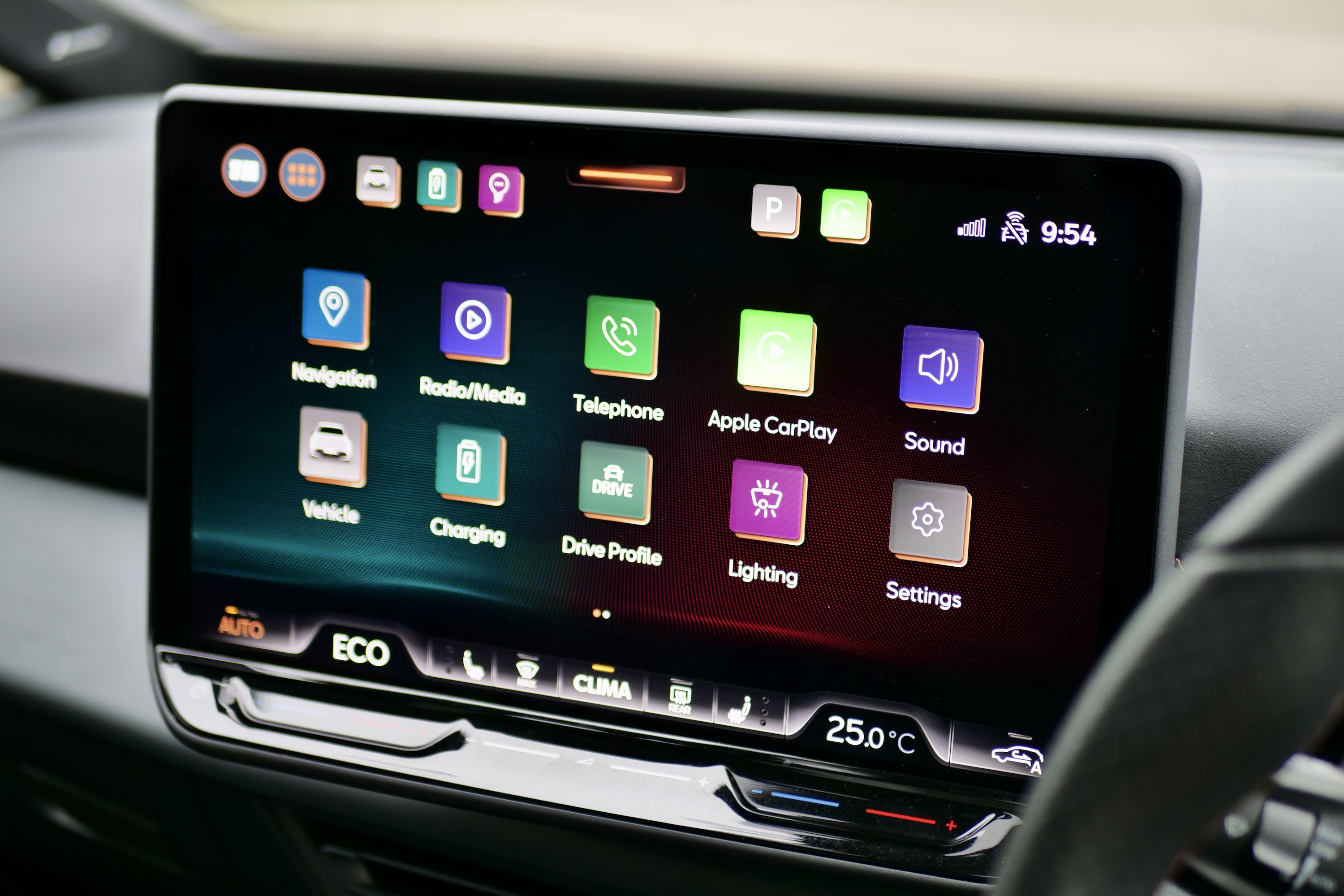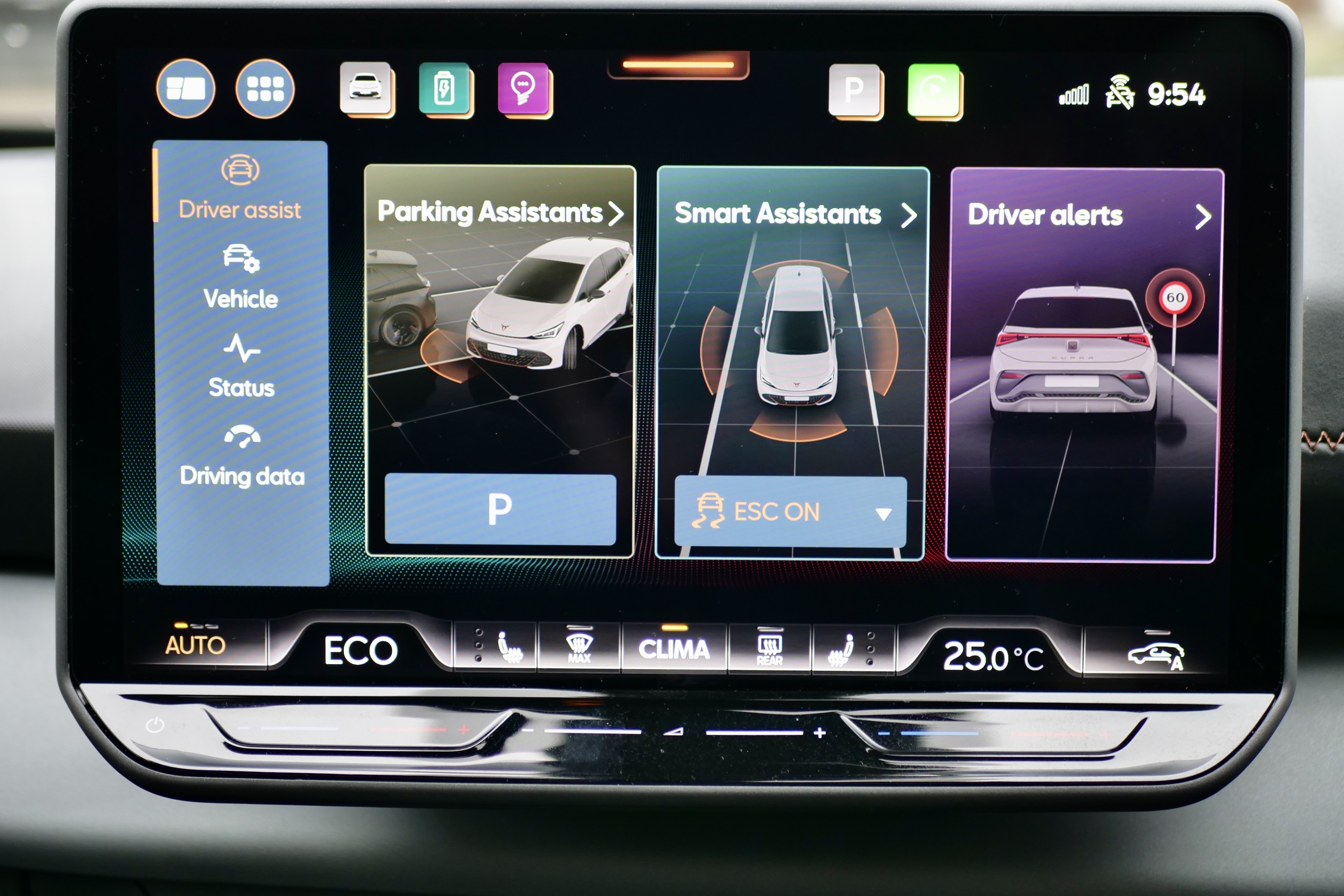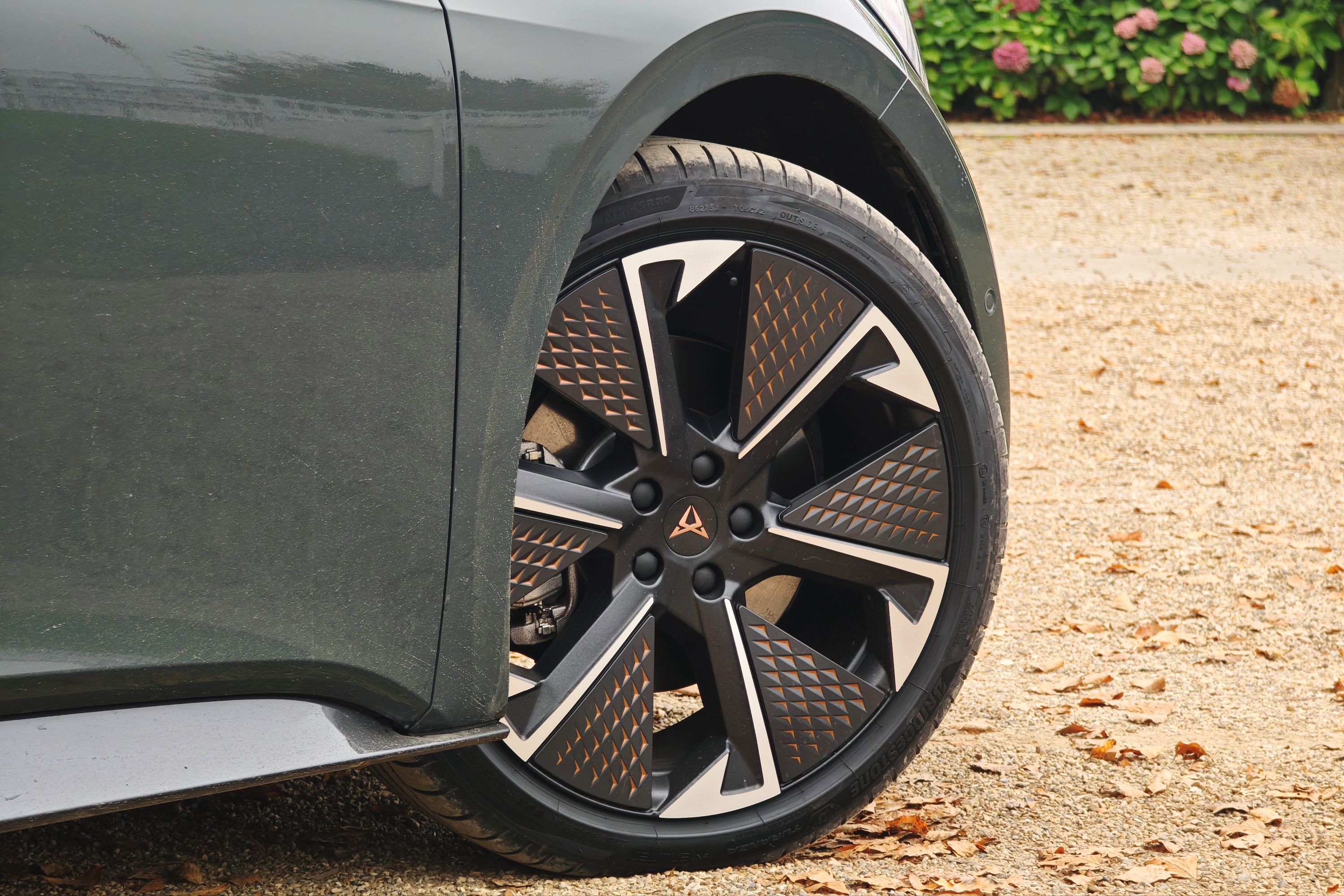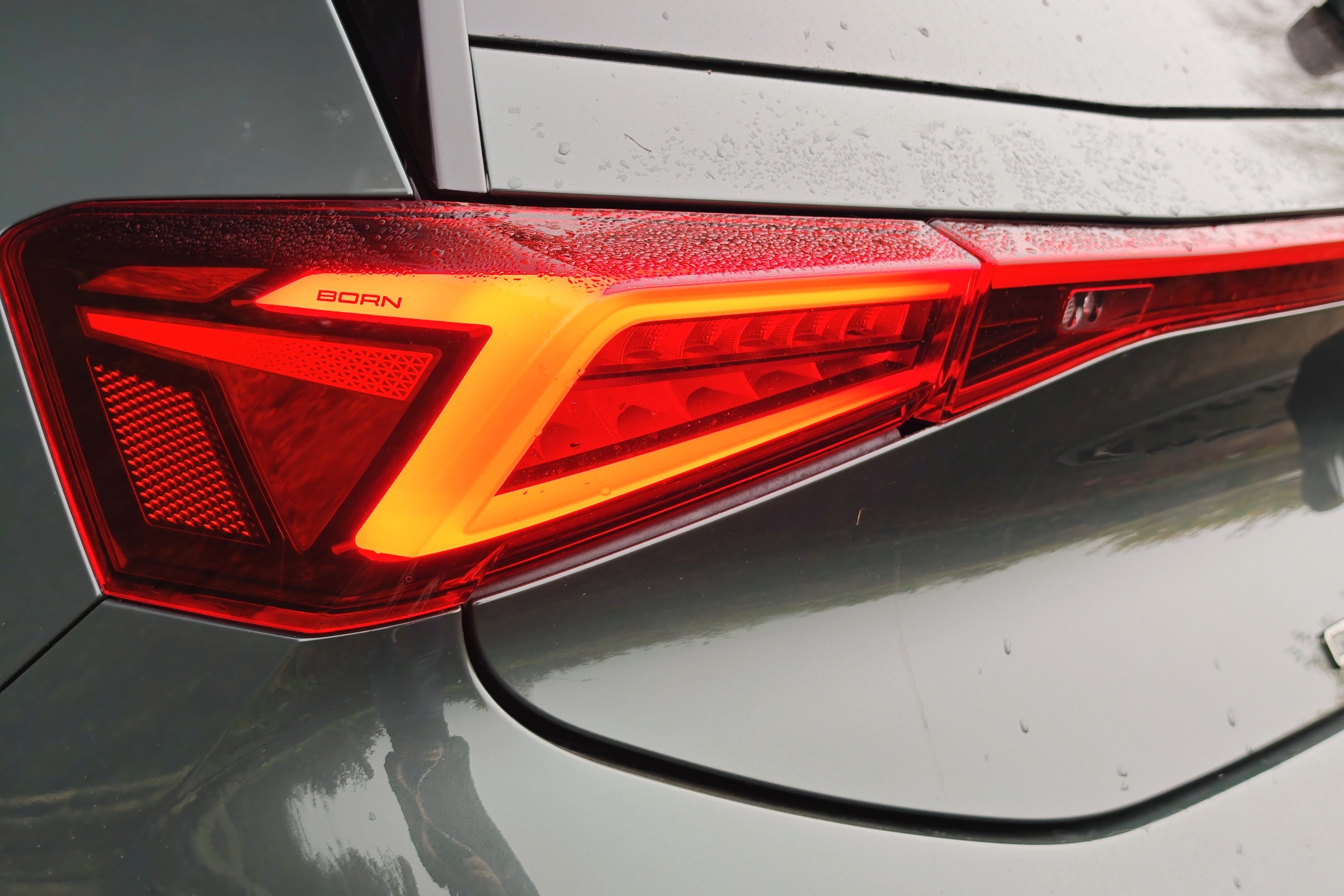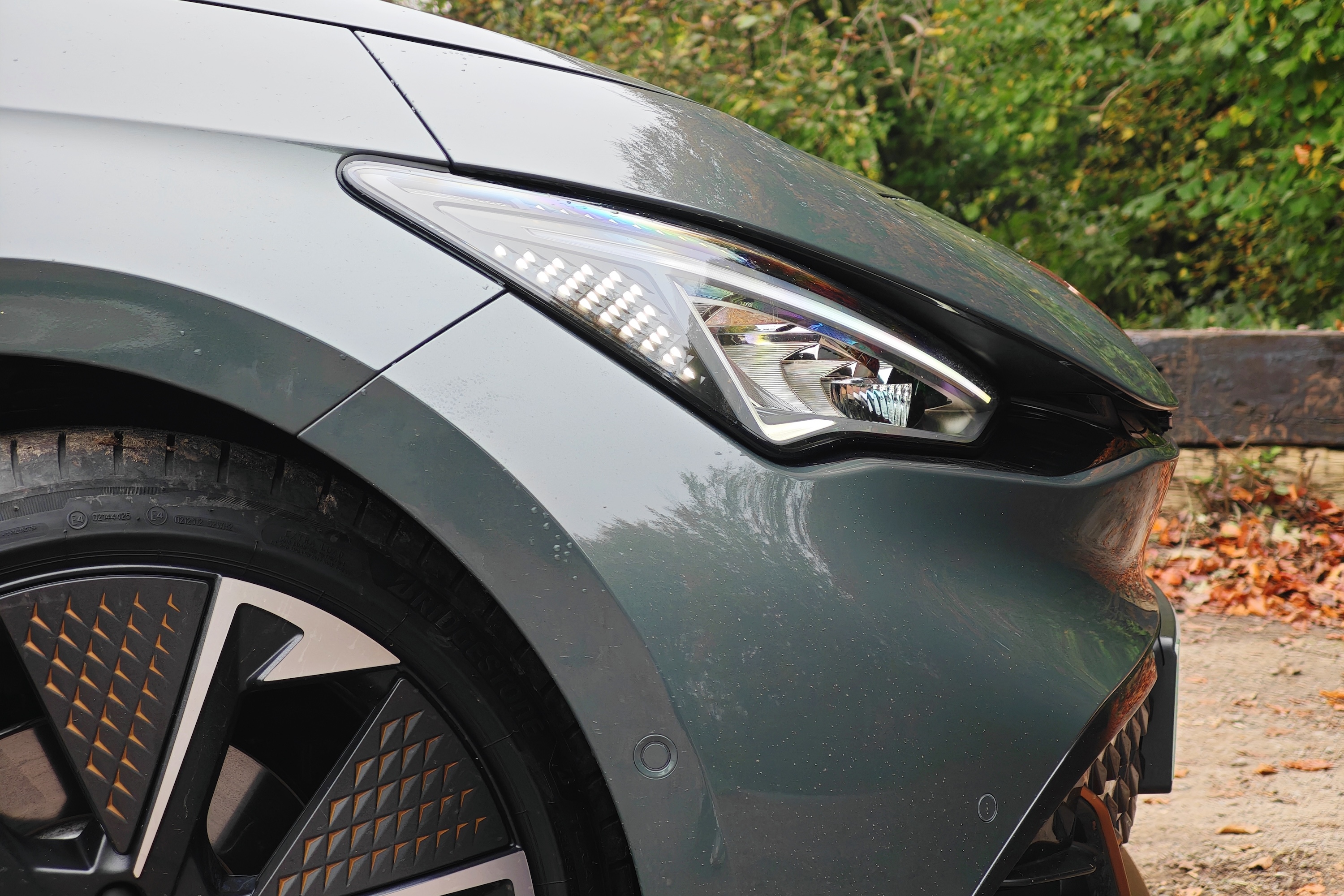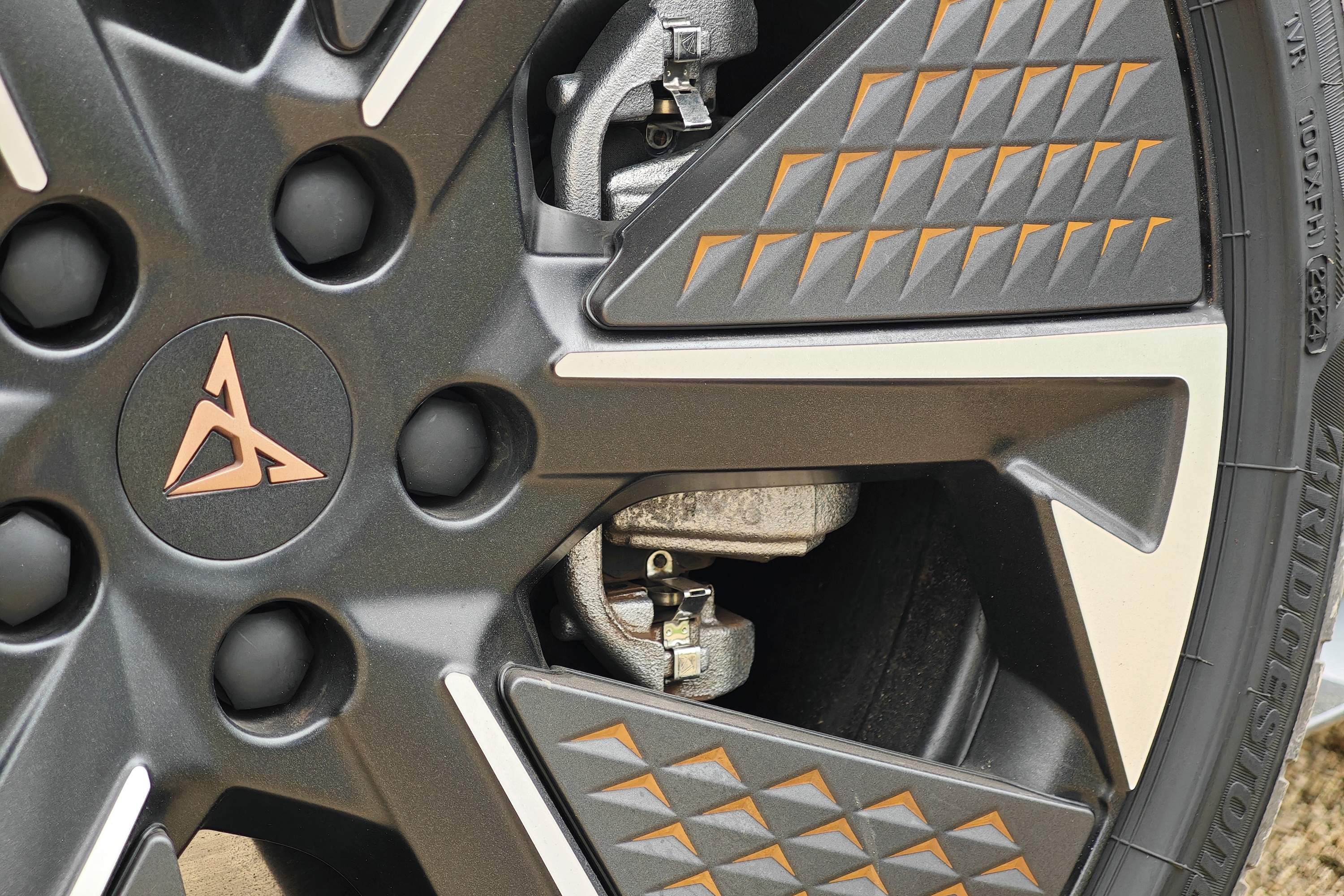The Cupra Born VZ is not a smartphone — it’s an electric car. Yet, during my time driving it over the last five days, it has reminded me more than once about the device I spend most of my time using and reviewing.
This is not a put-down, nor is it a comment on electric versus combustion-engine vehicles, but more about how I, someone who doesn’t professionally review cars, can still easily recognize what’s good and bad about it. What’s more, the categories I usually break phone reviews down into, and the language I regularly use to talk about them, also neatly applies to the Born VZ.
This crossover effect means that reviewing an electric car just like I’d review a smartphone isn’t the stretch it may seem at first glance. Therefore, I gave it a try, and that’s what you’re about to read. Be prepared for some similarities that may surprise you, and for a conclusion that shocked me.
A note on the review format
While the Cupra Born VZ article will follow Digital Trends’ basic review format, it won’t receive a score or have listed pros and cons. It’s not a smartphone, obviously, and our automotive section covers vehicles available to purchase in the U.S., so it doesn’t meet our requirements for a complete scored review. However, the car has been thoroughly tested and we will make our opinion about the vehicle clear, plus provide as much detail and information as usual, ensuring this feature meets our editorial standards.
Meet the Cupra Born VZ
Unlike an Apple iPhone 16 or a Samsung Galaxy S24 phone, which need little introduction to readers, the Cupra Born VZ probably needs a bit of explaining before we get into it. The Born is Cupra’s first all-electric car and is a sensibly sized hatchback, while the VZ model I’ve been driving is the newly released performance, or “hot hatch,” version. This is what attracted me to it. As a longtime fan of combustion-engine hot hatches, I wanted to see if the same joys could translate over to an electric car.
It has the right ingredients: A 326PS hatchback with a compact, yet aggressive style, low ride height, sporty seats, and a 0-to-62mph time of 5.6 seconds. It’s the newest car I’ve driven by a few years and only the third electric car I’ve tried out, but I thought I knew what to expect. In reality, it has changed the way I feel about electric cars, especially hot performance hatchbacks — and the trials and tribulations around charging them.

When I test a phone, in-hand comfort is something I pay special attention to. We hold these devices for many hours a day, and they should be properly designed to make this as pleasant as possible. The Born VZ comes with Cupra Cup Bucket seats, and they’re spectacular. The sculpted bolsters keep you securely held, and while they do feel fairly solid when you first sit in them, I haven’t found them uncomfortable on longer journeys. The steering wheel is very chunky, perhaps a bit too much, but worse is an ergonomic issue related to the wheel I’ll come back to later. The seats are electrically adjustable, but the steering column only has a rake adjustment, making it slightly less easy to get the right driving position.
Then there’s the look of the car itself. I’ve been testing a model in the exclusive Dark Forest color, complete with copper accents and black detail, and it’s well worth the extra cost as it suits the car. The car’s front end is purposeful and aggressive, and leads to a pleasingly cohesive overall design. I love the way the many angles and sharp lines found across the body — from the headlights to the C-pillar design and the taillights — share elements found in the Cupra badge. I’m less convinced by the carbon effect on the rear badge and the rear “diffuser,” and would have preferred integrated rear door handles to disguise the vehicle’s four-door nature.
Cupra Born VZ: performance

When you buy a flagship phone, you want it to be fast, smooth, and responsive. When I choose a performance car, I want it to be the same. Electric power makes the Born VZ incredibly smooth and suitably quick as well. Just like a phone’s gaming modes, the car has various driving modes, including a Performance mode and a high-performance Cupra mode. If the car was made by Asus, this would be its X-Mode.
After using them all in different situations and on various roads, I came to my first surprise, and it would go on to change the way I feel about the Born VZ as a whole. The Cupra mode makes the car ridiculously fast. It sharpens the throttle response to the point where it accelerates instantly when you brush the pedal and increases the brake regeneration effect too, resulting in a bucking bronco-style roller coaster ride on any public road as you try to tame a car desperate to power into the distance.
Cupra mode makes the car ridiculously fast.
I’m sure it would be ideal for a track, but on the road, it’s not pleasant, and aside from showing off the impressive acceleration, it’s not something I choose to use. Instead, the Performance mode was perfectly suited to my environment of twisty country roads and open main roads. I never once felt it needed any more power or responsiveness as overtaking from 30mph to about 60mph is ballistic and over in a flash. There are paddles on the steering wheel to change the brake regeneration effect, which is an entirely overengineered way to do so, but I found changing these to match the road, combined with Performance mode, suited the car far better than Cupra mode.
This was such a surprise. The Born VZ has never felt like a car that wants to be hustled along like a sharp hot hatch, and is far more at home being driven like a torquey big-engined sedan: hard, but smooth and controlled, using the 545 Newton meters of torque more than the horsepower to make progress. The low center of gravity keeps it fairly stable and composed around corners, and it’s also less wide than it appears in photos, so it’s easy to place. However, the 2,000-kilogram weight means it doesn’t feel nimble or all that confidence inspiring, as there’s little indication of when it’s going to run out of grip through the steering wheel. It’s rear wheel drive, which I really like, and more than once in Performance mode, the back unexpectedly stepped out on a wet roundabout.
It’s sort of fun in that respect, but it never feels happy doing any of it. It felt at its happiest, as did I, making fast progress in a mature and respectful manner. Braking is the worst part of the package, as the pedal varies in feel and response throughout its travel, which doesn’t inspire you to attack any corners. The stopping power is there, but you have to really stamp on the brake pedal to find it, so it lacks the finesse and adjustment required in a hot hatch. The recipe is right for a hot hatch, but it’s less Honda Civic Type R, and more Jaguar XJR.
Cupra Born VZ: screens, software, and connectivity

Interacting with the Cupra Born VZ’s software and touchscreens was where I, as a phone reviewer, felt most at home. There are two screens: a big 12.9-inch screen in the center of the dashboard, along with a smaller 5.5-inch screen in front of the driver. There’s also a head-up display projected on to the windscreen, and various touch-sensitive buttons and sliders.
Lets start with the touch-sensitive controls. They’re awful, from both a sensation and an ergonomic standpoint. I mentioned earlier about the steering wheel. It has sort of touch-sensitive buttons on both sides, positioned far too close to the edge of the rim, and I repeatedly activated them with my palms. They also feel so bad to use. It reminded me of those early “touch-sensitive” controls on phones like the LG Chocolate. Yes, that phone from 2006, replicated in a car made in 2024.

The touch-sensitive sliders used for the heating are just as bad –they’re far too sensitive to use on anything but smooth tarmac — as is the power button alongside it for the media center. Thankfully, the touchscreen is far more responsive, really bright and colorful. The software is sensibly designed so buttons are big and easy to press, plus there’s enough processing power to keep everything moving smoothly and without lag. It felt very similar to using a current high-end smartphone.
But there’s no doubt the screen and its endless buttons and menus are confusing and annoying to use on the move. You can use your voice to control some features, and the car always recognized my “Hey Cupra” wake word. While it happily enabled the climate control for me, it isn’t very good at complex commands around features like navigation. Just like a voice assistant on your phone, it’s not as helpful as it should be, and it will take practice and determination to use it regularly.
I used wireless Apple CarPlay without a problem, and there’s a wireless charging pad in the center console, plus a pair of USB-C connectors both front and rear. The Born VZ has a Sennheiser-tuned audio system that sounds brilliant, with plenty of bass and a wonderful surround sound effect. It makes great use of all the speakers at all times. Yes, the Cupra Born VZ’s controls and functionality make it look and operate like a big phone, but I was relieved to find it has more in common with a Galaxy S24 Ultra than anything else.
Cupra Born VZ: cameras and sensors

The Cupra Born VZ has an array of cameras, radar, and ultrasonic sensors enabling a selection of safety and assistance modes and features. During my short amount of time with the car, I was really impressed with Cupra’s Adaptive Cruise Control and the way it worked with all the sensors and cameras. I could set a speed of 40mph along the many backroads where I live, and it would maintain speed and distance behind traffic, even through the twists and turns where the car in front wasn’t directly in front of me.
Setting it up involved messing around with the touch-sensitive controls on the steering wheel, though, and they aren’t responsive or tactile enough to make it a pleasing experience. Another feature I really liked is part of the Adaptive Cruise Control and Travel Assist system, where the car “sees” speed limit signs and even seems to read the road ahead, adding extra regenerative braking when you slow down and ensuring you’re at the right speed for the environment. Rather than being a hindrance, it felt very natural and further added to the relaxed cruise the Born VZ excels at providing.

The multiple cameras and sensors also enable a 360-degree view of the car, helping with maneuvering and parking. The screen shows plenty of detail, but I found the view confusing and too far removed from what I saw with my eyes for me to trust it. The cameras need to replicate the environment you actually see to be useful, and the Born VZ’s system made me question what I was doing. I may not be able to take photos with the Born VZ’s cameras, but they’re clearly very important to the vehicle, and for the most part, they worked in conjunction with the sensors and software really well.
Cupra Born VZ: battery and charging

The Cupra Born VZ has a 79 kilowatt-hour lithium-ion battery, making it just a little beefier than the one in my phone. It is compatible with both Type 2 and combined charging systems, and can handle up to 185 kilowatts. Cupra claims a range of 315 to 372 miles on a single charge. In mixed driving conditions in the U.K., I’ve averaged around 3.5 to 4.5 miles per kilowatt-hour.
I don’t have an electric car charger at home, so I was at the mercy of the public charging system during my week with the car, but it was actually far less problematic than I feared. I visited a charger in a local car park and used the slow Type 2 charger to add around 40 miles range in 90 minutes. The charger had a faster option, but it was in use when I arrived. Oh, and if you’ve never wrangled the Type 2 charging cable for an electric car, they’re heavy and annoying. I’d hate to deal with it in the rain.

A couple of days later, I really needed to fully charge the car, so I visited a Gridserve center and made use of the CCS charging. The Gridserve experience was superb. There are 30 chargers at the London Gatwick Airport location, and at least half were available when I arrived during the day. I plugged the car in, then went into their large, clean waiting area to get a coffee and lunch. I plugged it in with 40% remaining, and it took 25 minutes to reach 80%, but I pushed on to 100% for a total charging time of 45 minutes.
With 100% charge, the car estimated I had 302 miles range, and my drive home was 25 miles. By the time I arrived, the estimated range had dropped to 268 miles and the car used 10% of the battery. The roads were a mix of highway and country roads, and I drove spiritedly down the latter. When I play graphically intensive games on my phone, the battery takes a hit, and the car is the same after a good drive. It’s just a shame that I can’t plug the car in at home to top it up afterwards. Unsurprisingly, the way I thought about the car’s battery and charging closely mirrored the way I do so with my phone.
Cupra Born VZ: Was it a horrible charging experience?

Since I do not have an at-home electric car charger, and even the most powerful phone charger I own won’t give the Born VZ any juice, I had to find places outside to charge. I was a bit worried about it as I’ve seen and heard all the horror stories and negativity around electric car charging if you don’t have a charger at home. Here’s the biggest shock for me as a newcomer to using an electric car regularly: I didn’t really encounter any logistical issues when charging.
The worst part of the charging experience as a whole are the apps. A different one is required for each provider, and some are really bad. I especially disliked the ones that take a large prepayment before you even start. I used three different chargers over the first few days, and one Type 2 charger failed to charge the car. That’s not a great average, but I’d know to avoid it for next time. Like charging my phone, I would slowly start to understand when and how to best charge the car’s battery, and which systems worked best for my needs.

However, while the actual act of charging the car wasn’t as much of an issue as I had expected, it is very expensive if you can only charge using a public charger. The Type 2 charger cost 12 British pounds (about $15) for about 40 miles of range, while the Gridserve CCS added 60% to the battery, taking it to full charge for 40 British pounds, which is about $52. For this, I received an additional 170 miles of range. When I brim the gas tank in my Hyundai i30 N Performance, it costs about 60 pounds (or about $77), which gives me around 330 miles of range.
Cupra Born VZ: price and availability
The Cupra Born VZ is not available in the U.S., but the model I’ve been trying out is available in the U.K. and other regions now. It starts at 44,625 British pounds, or around $57,700, and the version I tested was closer to 48,500 pounds (or around $62,700), with options including the exclusive paint, panoramic sunroof, and the heat pump.
Is it a car I’d want to own, or a phone I don’t?

Reviewing a car like it was a phone started out as a bit of a joke, but the parallels are all there, from the importance of the screen and whether the software frustrates or not, to the wish for longer battery life and faster charging, and even the difference a good camera system makes. What’s interesting, and why the conclusion has shocked me, is the car’s software is surprisingly good, and I didn’t struggle with battery life or charging during my time with the Born VZ.
When I review a smartphone I live with it for several weeks and use it everyday as my main device. I used the Born VZ as my main car, doing the same trips I’d usually do, plus a few others for fun. I found it fitted in to my life really easily, and aside from the cost of charging publicly, I would happily own one and use it long term without much of a worry about charging. It’s contrary to how I felt before I lived with the Born VZ, and it’s how I feel about the best smartphones out there, such as my iPhone 16 Pro Max.
Is the Cupra Born VZ an electric hot hatch, though? I’m not sure it is, but this isn’t a mark against the car — more a comment on the marketing. Yes, there will be electric car buyers out there wanting the hot hatch experience, and the Born VZ on paper is everything they’d want. In reality, it is pretty close, as it’s an entertaining drive and undoubtedly has the required turn of speed, but not the true excitement, nimbleness, or deep involvement I want. It’s much happier imitating a big super sedan than it is a hot hatchback, and after driving and enjoying it each day, I’m fine with that.
Read the full article here





